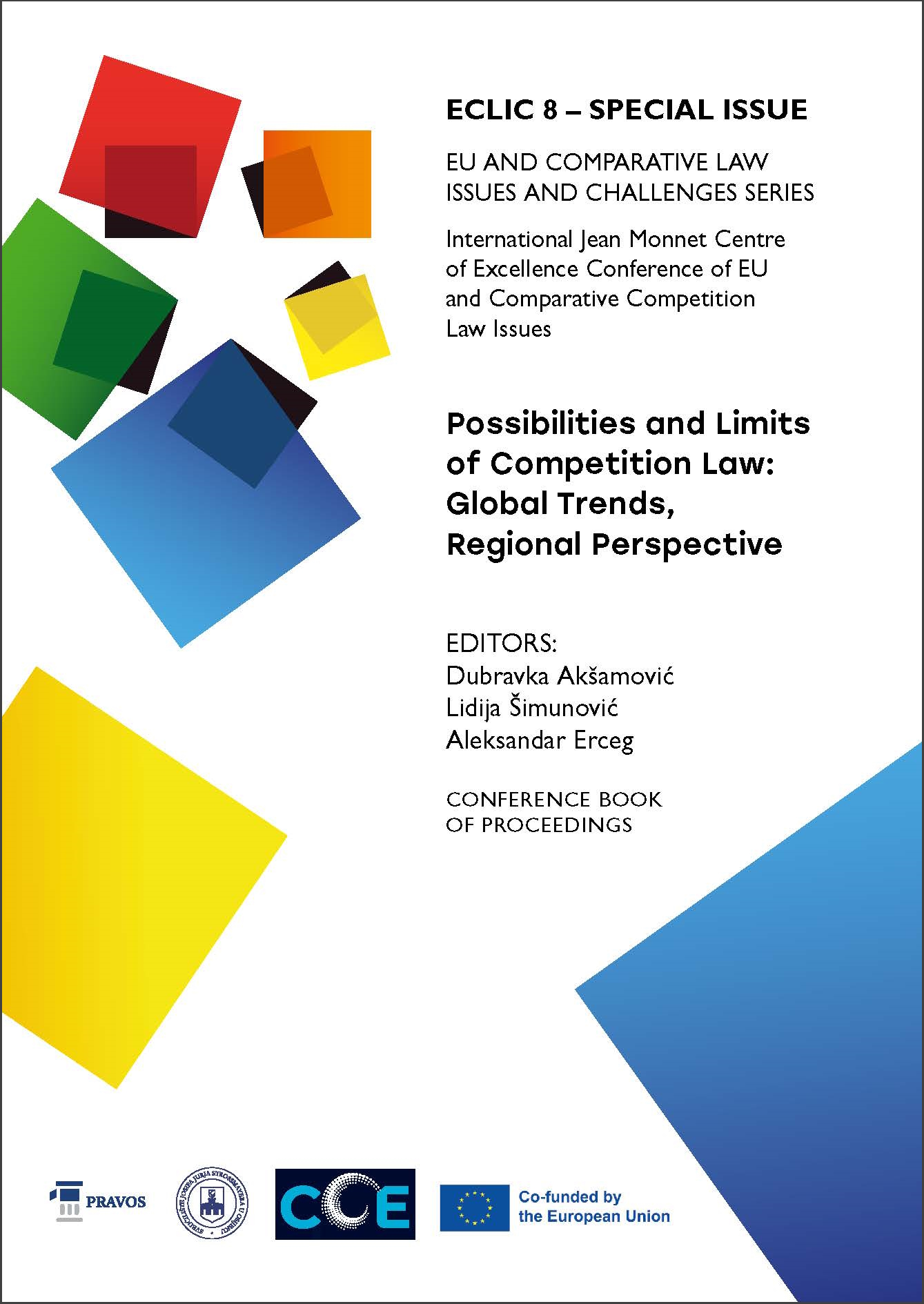PRIVATE (NON-)ENFORCEMENT OF COMPETITION LAW IN SLOVAKIA
DOI:
https://doi.org/10.25234/eclic/35829Abstract
Slovakia transposed the Damages Directive (2014/104) in the simplest way – copying its provision into separate law and repealing previous provisions tackling possibility of the private enforcement of competition law, including collective rights of consumers or their association. The Damages Directive was popularly presented as a “fresh start” for public enforcement of competition law in the EU Member States and to solve some interplays regarding access to file and protection of leniency submissions. Nevertheless, the Damages Directive left several loopholes in private enforcement since it covers merely “some” provisions on damages claims. The paper will investigate level of private claims arising from the violation of competition rules in Slovakia, reasons for such a level and provides some avenues for further incentives to enforce competition rules outside the administrative procedure at the Slovak NCA. First, preliminary observation regarding stand-alone actions can show to us certain unwillingness of Slovak courts to provide a civil remedy in cases of alleged violation of the competition rules. The Supreme Court of the Slovak Republic in the cases involving dispute between a health insurance company and hospitals refused to provide an injunction without prior decision of the competition authority. This decision was based on the argument that courts are bound by the decision of competition authority in terms of administrative offence punished by that authority. Thus, the paper will provide an answer to the question, whether this position of the Supreme Court, in fact, limited the possibility of success of stand-alone actions. Second, from the analysis of the investigation activity of the Slovak NCA, it is apparent that in the recent years it focuses almost purely on investigation of bid rigging cartels. In this context, the paper will assess whether the decision of the competition authority provide enough information for possible follow-on action. Indeed, in bid rigging cases, such assessment will be easier, comparing to abuse of dominance. Nevertheless, the paper will try to estimate possible overall damages caused by anti-competitive behaviour identified by the Slovak NCA. In this context, it must be noted, that in Slovakia, it is better to call enforcement of competition rules through means of civil law “public-private” enforcement rather that “private” enforcement because action can be filed by public authority (or in some cases more precisely the Slovak Republic as state represented by a public authority) harmed by bid rigging, rather than individuals. The paper reviewed the recent decisions of the AMO if they can serve as a basis for follow-on action, based on four criteria: (1) if they are final, (2) if the described behaviour caused a relevant harm, (3) if the injured party contributed intentionally or negligently into infringement, and (4) if it is possible to find a liable person with assets enough to cover damages. The analysis showed that only a small fraction of the decision of the AMO passed through this scrutiny. Finally, the paper suggests non-exhaustive list of suggestions that can improve possibilities of private damages claims in competition matters: the rebuttable presumption that anti-competitive behaviour raised prices by 10 %, involvement of the “victims” as a third parties, including damages consideration in the settlement procedure, solving private-law aspects of competition law enforcement by private-law measures. Although the first suggestion requires the statutory change, the remaining can be achieved also via a new practice of the AMO and contracting authorities. Better involvement of the “victims” of competition infringements is, moreover, consistent with similar policies in criminal proceedings.
Downloads
Published
Issue
Section
License
Copyright (c) 2025 Ondrej Blažo

This work is licensed under a Creative Commons Attribution-NonCommercial 4.0 International License.
Authors retain the copyright on the papers published in the Journal, but grant the right of first publication to the Journal. Papers accepted for publication or already published in ECLIC of the Faculty of Law in Osijek may be published by the author(s) in other publications only with proper notice of its previous publication in ECLIC.


